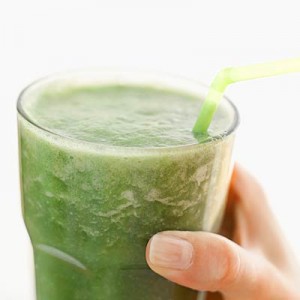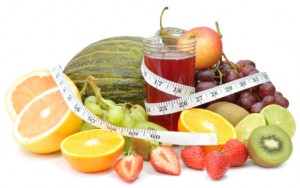 Anyone remotely interested in health, alternative health, and diet has probably heard of juice fasting. Supporters put it forward as a way to cleanse your body while obtaining necessary nutrients. Critics say they’re useless at best, and unhealthy at worst. But how much do you know about it?
Anyone remotely interested in health, alternative health, and diet has probably heard of juice fasting. Supporters put it forward as a way to cleanse your body while obtaining necessary nutrients. Critics say they’re useless at best, and unhealthy at worst. But how much do you know about it?
Here are six facts about juice fasting.
#1: Juice fasting can cause some serious and unexpected side effects
Possible side effects include salt deficiency, adverse reactions to some medications, aggravation of medical conditions, and malnutrition. Because of the low salt content in most fruits and vegetables, a diet consisting of 100 percent fruit and vegetable juice can result in a person suffering from salt deficiency if he or she continues with it for an extended period.
Quiz: Is Your Body TOXIC? Take the Test...
(get your free personalized report)
Grapefruit juice, in particular, cannot be mixed with some medications. A person who unwittingly uses grapefruit juice while being on these medications can suffer very serious side effects – and even death.
Some people may suffer from the aggravation of their medical conditions, such as diabetes, due to the increased intake of high-sugar juices. People with kidney disease can suffer from the high levels of minerals and potassium in juices. Those undergoing chemo should avoid the low levels of protein and high antioxidants found in juice fasting.
You cannot meet all of your nutritional needs with just fruits and vegetables alone. An extended juice fast can lead to nutritional deficiencies. People, especially women, need fat to survive, as well as protein and B vitamins. You cannot get these from fruits and vegetables.
#2: While juice fasting, you remove the fiber of fruits and vegetables and drink only the liquids left behind
Yes, while your body needs fiber, you might want to remove it for a time (during the fast) to give your body a break from digestion. This is part of the whole process of fasting. This is why you don’t blend fruits and vegetables, but juice them. Your body supposedly takes the energy it would spend on digesting the solids and directs it towards cleansing itself.
This is one of the reasons why people buy cleansing diets like Isagenix, which provide the nutritional benefits of fresh fruits and vegetables, along with the correct levels of protein and, importantly, fiber. These elements are often missing from a ‘juice only’ detox.
Quiz: Is Your Body TOXIC? Take the Test...
(personalized report)
#3: Green vegetables are best when choosing what to drink
At least half of your juices should be from green vegetables when fasting, as well as from detoxifying herbs. Keep the fruit you use to a minimum in order to keep sugar under control. You don’t want to feed yeast, or cause an imbalance in your blood sugar levels.
#4: Low-sugar fruit juices are best
If you must use juices, choose ones low in sugar like lemons, limes, berries, grapefruit juice (avoid if you are on certain medications), and green apples.

#5: If your bowel movements slow down or stop during juice fasting, the toxins are not leaving your body
If your bowel movements stop while juice fasting, you might want to consider a colon cleanse. Or even stop the fast, and go back to eating solid food.
#6: A juice fast can last anywhere from one to 60 days, although going beyond seven days isn’t advised
A two- to three-day juice fast is optimal; it gives you the weekend to settle in and have more time to do the actual juicing – which is time consuming – and doesn’t interfere too much with your normal life. Extend it to a week, though, and you’re pushing the limits of safety when it comes to a balanced diet.
Conclusion
All in all, there’s no conclusive evidence either way that juicing is healthier or better for you than eating your fruits and vegetables whole. If you want to try a brief juice fast, go ahead, but make sure you educate yourself about the possible hazards and how to avoid them.
